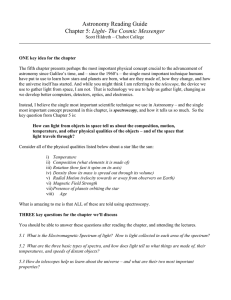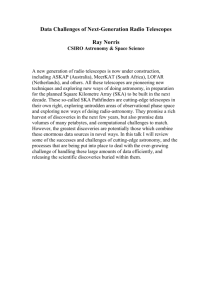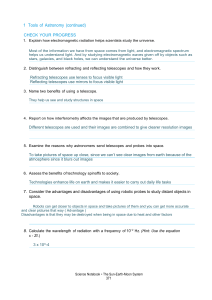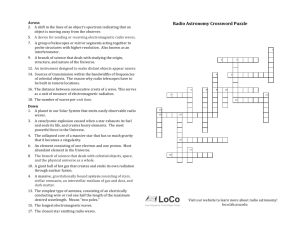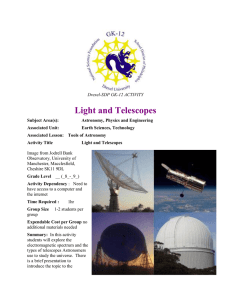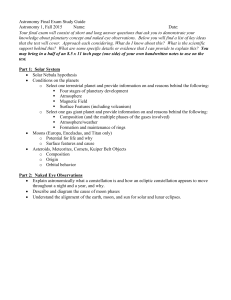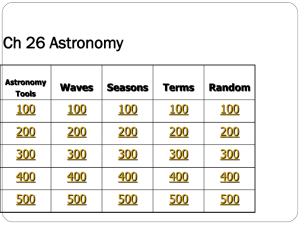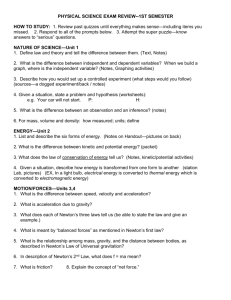Unit One Review
advertisement
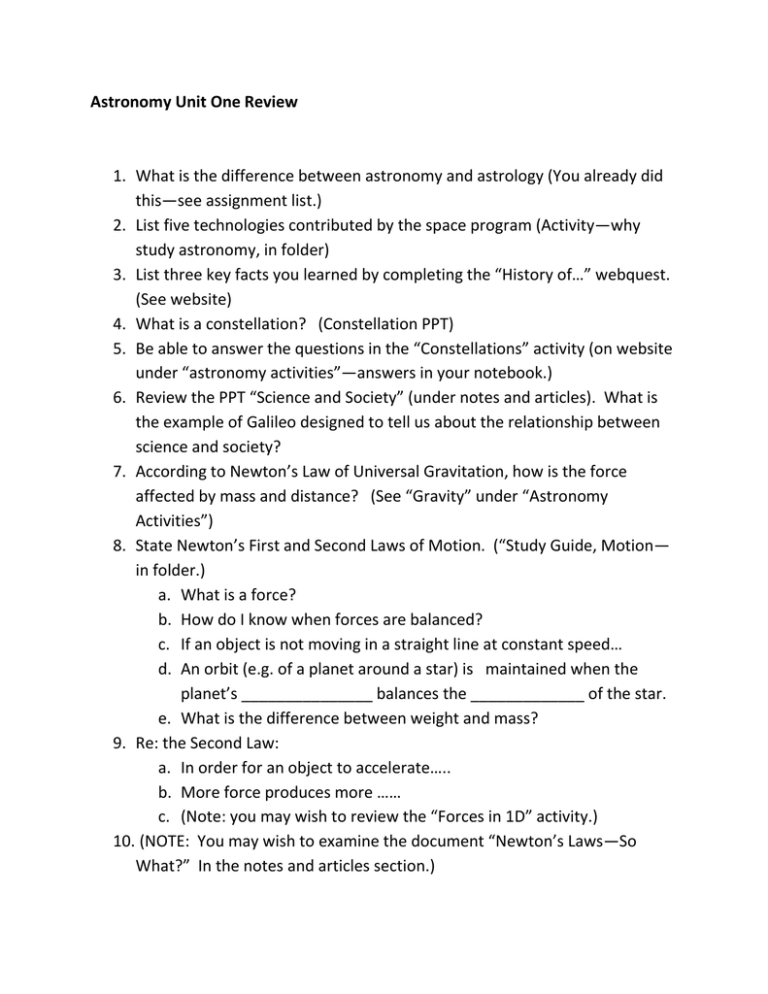
Astronomy Unit One Review 1. What is the difference between astronomy and astrology (You already did this—see assignment list.) 2. List five technologies contributed by the space program (Activity—why study astronomy, in folder) 3. List three key facts you learned by completing the “History of…” webquest. (See website) 4. What is a constellation? (Constellation PPT) 5. Be able to answer the questions in the “Constellations” activity (on website under “astronomy activities”—answers in your notebook.) 6. Review the PPT “Science and Society” (under notes and articles). What is the example of Galileo designed to tell us about the relationship between science and society? 7. According to Newton’s Law of Universal Gravitation, how is the force affected by mass and distance? (See “Gravity” under “Astronomy Activities”) 8. State Newton’s First and Second Laws of Motion. (“Study Guide, Motion— in folder.) a. What is a force? b. How do I know when forces are balanced? c. If an object is not moving in a straight line at constant speed… d. An orbit (e.g. of a planet around a star) is maintained when the planet’s _______________ balances the _____________ of the star. e. What is the difference between weight and mass? 9. Re: the Second Law: a. In order for an object to accelerate….. b. More force produces more …… c. (Note: you may wish to review the “Forces in 1D” activity.) 10. (NOTE: You may wish to examine the document “Newton’s Laws—So What?” In the notes and articles section.) 11. What are the three types of visible spectra, and how are they formed? (See “Spectroscopy” under notes and articles, as well as the handout provided after much of the class chose not to examine the “spectroscopy” material online.) 12. How are visible spectra used to identify the composition of stars? (ditto) 13. What are the different forms of electromagnetic energy that make up the electromagnetic spectrum? (See “Electromagnetic Spectrum Webquest”) 14.What forms of electromagnetic energy penetrate the atmosphere? (See link in “Websites”) 15. What is the difference between optical, radio and orbital telescopes? (See site, “Telescopes”) 16. What is the difference between reflecting and refracting optical telescopes? (See site, “Telescopes”)
